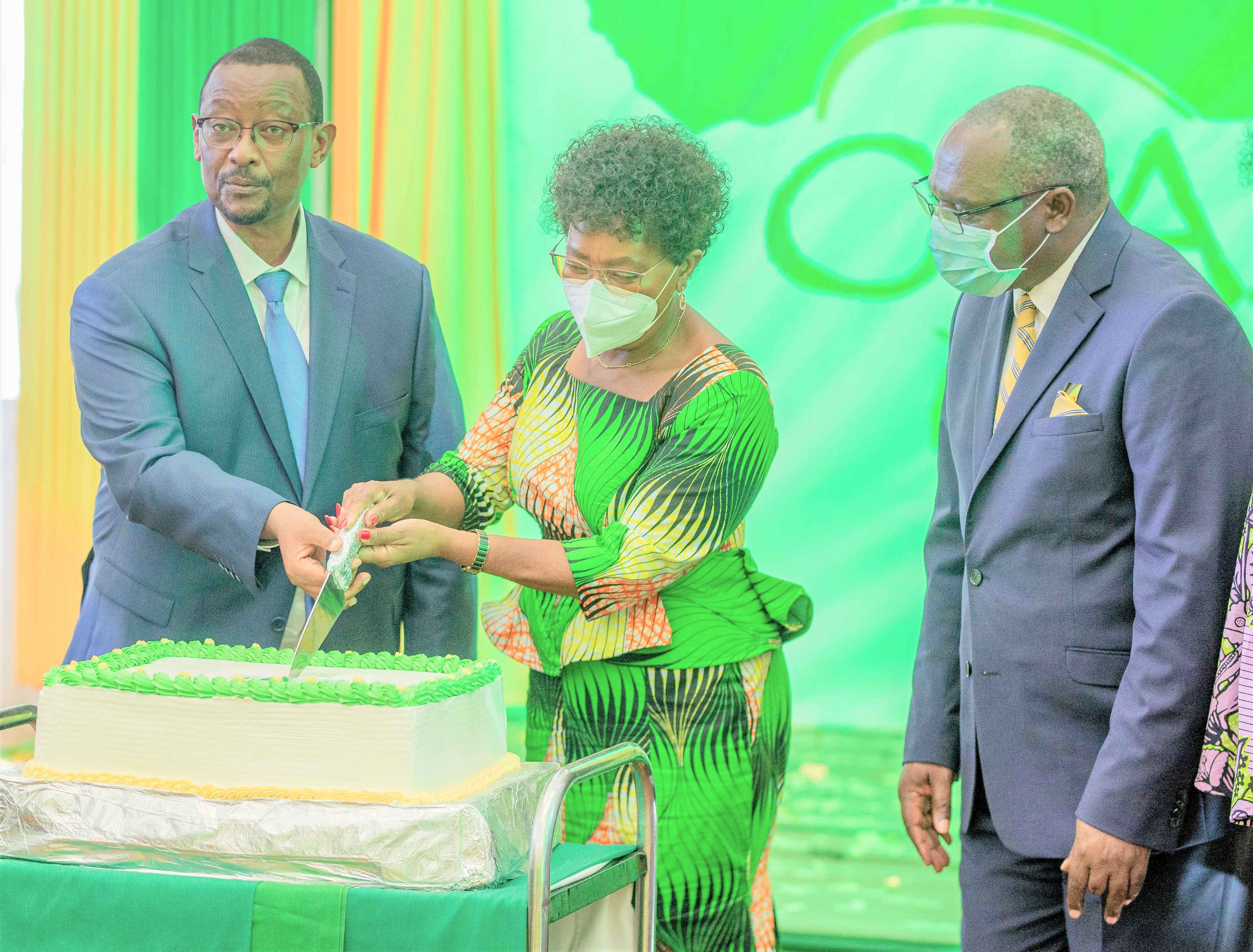
The Open Forum on Agricultural Biotechnology (OFAB) is now in Malawi. This follows the launch of the local chapter at a function presided over by the Minister of Education Hon. Agnes NyaLonje. The Chapter will be hosted by the National Commission for Science and Technology (NCST), which advises government and other stakeholders on science, technology and innovation to promote science and technology adoption.
Hon NyaLonje welcomed the initiative, saying it aligned with the government’s priorities to use technology to improve the economy and lives of its citizens.
“It is an honour to officiate the launch of OFAB Malawi Chapter. I do so on behalf of the President of the Republic of Malawi, Dr Lazarus McCarthy Chakwera. My presiding over the official launch signifies the importance the government attaches to the transformation of Malawi’s economy for the betterment of the livelihoods of citizens,” said the minister.
She said although the agricultural sector was the mainstay of the economy, several challenges hindered growth. These include limited arable land, declining soil fertility, inferior varieties of seeds, high incidences of pests and diseases and, unpredictable weather patterns due to climate change.
“Agriculture experts agree that solutions to these challenges lie in multiple approaches that integrate the best of the conventional methods as well as other relevant technologies, one of which is modern biotechnology,” she said.
Hon NyaLonje said Malawi had made strides in adopting modern biotechnology, putting in place legal and policy instruments to guide development and use of the technology. For instance, the government approved the National Biotechnology and Biosafety Policy in 2008; enacted a Biosafety Act in 2002; and the Science and Technology Act in 2003 to ensure safe and responsible application of the technology. ‘’These instruments provide a framework for effective implementation of biotechnology programmes and activities in line with Malawi 2063,” the minister added.
She cited Bt Cotton as one of the biotechnology crops the country had already adopted and released to farmers in 2019.
‘‘This was after our researchers at Lilongwe University of Agriculture and Natural Resources and the Department of Agricultural Research Services in the Ministry of Agriculture carried out extensive research on the crop. Cotton is considered as a strategic crop and promotion of cotton is part of the country’s wealth creation strategy,’’ Hon NyaLonje explained.
She said research had shown that cotton production could be improved through the use of Bt. Cotton from about 1000kg/hectare to 2000kg per hectare. The increase in production has the potential to benefit the entire cotton supply chain.
The minister challenged scientists to be proactive and communicate the benefits of biotechnology to the public
“Biotechnology is not well understood by the majority. Furthermore, scientists are not very good communicators. They are fond of using jargon which the average farmer or beneficiary of the technology cannot easily comprehend, this creates information gap between the scientists and the farmer who will use the technology,” she said.
The minister said the establishment of OFAB Malawi Chapter should help address this challenge by providing a platform to communicate effectively and close the information gap around agricultural biotechnology.
African Agricultural Technology Foundation (AATF) Executive Director Dr Canisius Kanangire hailed the Malawi government for leading African countries in putting systems in place towards utilization of science, technology and innovation.
‘‘There has been a cordial working relationship between the government, through its Ministries and Departments of NCST, DARS and TLC and the African Agricultural Technology Foundation, the organisation which I lead,’’ Dr Kanangire said.
He saidAATF was committed, through OFAB, to sharing information and evidence onagricultural biotechnology with governments and the public to inform policy and development agenda for a prosperous Africa.
“Knowledge sharing must be at the centre of this discourse. This launch is timely as Malawi sustains its efforts along the path towards commercialization of products emanating from agricultural biotechnology. It is one tool that has not been widely used in Africa despite having demonstrated transformative impact in many parts of the world where it has been utilised,” he said.
For instance, Dr Kanangire said, research indicates that farmers who adopted Bt. Cotton in India, managed to avert crop damage, and reduced the use of highly hazardous chemical pesticides by over 80%.
“We also note that biotechnology greatly revolutionized the agricultural sector in Latin America, particularly Argentina. Closer home, Bt. Cotton has delivered great results in South Africa, Sudan, Malawi, Nigeria and Kenya.”
He pointed out that South Africa had commercialized a drought tolerant maize with insect resistance traits that can help farmers avert total crop failure in the event of reduced rainfall amounts and attack by destructive pests such as the maize stalk borer and the Fall Armyworm with yield improvements of up-to 60%.
The variety, known as TELA maize, was developed by AATF and its partners, was released in Nigeria at the end of 2021.
“We have also witnessed biotechnology ensuring access to more nutritious foods such as with the commercialisation of the first genetically modified cowpea in the world – the Maruca Pod borer Resistant Cowpea – that is now available to farmers in Nigeria, also a product of a partnership led by the AATF,” Dr Kanangire said
‘‘It is my sincere hope that what we will witness here today will greatly advance the quest for advancement of biotechnology in Malawi. On our part, AATF commits to working closely with all the relevant Ministries, Departments and Agencies to contribute to the direction that the government chooses to take.”
The OFAB is an advocacy platform established in 2006 by AATF, an international not-for-profit African-led organization that is empowering smallholder farmers across Sub-Saharan Africa with a wide choice of agricultural innovations to promote food and nutrition security.
Malawi becomes the tenth country to host OFAB after Kenya, Uganda, Tanzania, Ethiopia, Ghana, Burkina Faso, Nigeria, Rwanda and Mozambique. OFAB works closely with policy makers, the media, farmers, biosafety regulators, scientists, industry, and consumers.



















































































